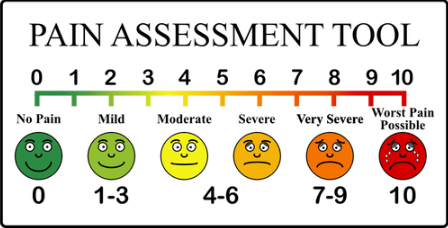“Pain”: Just a Simulation?

January 11, 2023
We’ve all experienced pain in some way, shape or form, but some of the pain you’ve experienced isn’t actually there. Some of your pain is just a fake simulation that your brain creates when you’re stressed. This is called psychosomatic pain.
What exactly is psychosomatic pain?
Psychosomatic disorder is a mental condition that leads to physical pain, usually lacking any real medical explanation. It can affect anyone, anywhere. People with this disorder tend to seek frequent medical attention, becoming frustrated with no diagnosis of something actually being wrong with them. Behavioral therapy and some sort of stress reduction may help. The actual feeling of this pain typically adds pain to an area such as the back or hips, or a previously injured area, which is why you may hear someone being sore or having an aching back while they’re stressed. This is also the cause for some “headaches”.
Symptoms
Some of the more common symptoms of psychosomatic pain disorder are stress– more precisely, many thoughts concerning prior pains, and stressing about that will badly affect your ability to function well. People who have this condition think of their pain as a medical condition, rather than mentally simulated pain and going to the doctor frequently to have their “pain” diagnosed. They frustrate themselves with their lack of diagnosis, which creates even more psychosomatic pain.
Who Might Have Psychosomatic Pain?
Some studies have revealed that people who fall under the categories presented below are shown to be more likely to be experiencing psychosomatic pain.
- A chaotic lifestyle
- Depression or psychological disorders
- Unemployment
- Frustration
- Difficulty expressing or noticing emotions
People who fall under some of these categories are more likely to experience more psychosomatic pain.
The Effects of Psychosomatic Disorder
Some of the most common effects of this condition are:
- Fatigue (being tired and getting tired much easier)
- Insomnia (not being able to sleep)
- Aches and pains, like muscle pain or back pain.
- High blood pressure
- Trouble breathing
- Indigestion (tummy ache 😔).
- Headaches and migraines
If you have some of these types of negative effects, and do not receive a diagnosis from a doctor, there is a chance you may be experiencing psychosomatic pain for a variety of reasons that I had detailed earlier in the text.
Conclusion
In conclusion, some pain that people experience might not actually be real. Some of it could just be… a simulation. Some of the pain you experience might be only in your mind, caused by some sort of stress or chaotic lifestyle. Some of the effects of the psychosomatic disorder are things like breathing troubles or muscle pains. These are relatively common, but people normally pass them off as “age”, and some people even overestimate the danger they’re in. This usually leads to getting a diagnosis (or failing to). This is common, though a lot of the time, you might just be very, very stressed. I hope that those who read this are better informed about the mysterious condition known as the psychosomatic pain disorder. Do you think you’ve ever experienced psychosomatic pain?
Work Cited
“Psychosomatic Pain.”
Cleveland Clinic – Psychosomatic Disorder
https://my.clevelandclinic.org/health/diseases/21521-psychosomatic-disorder.




